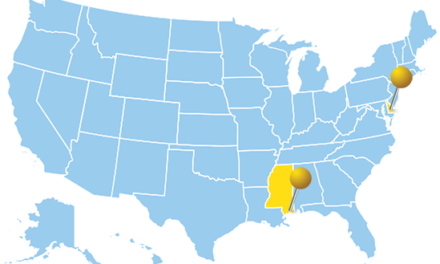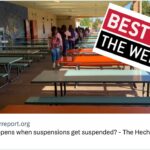Low-income children need more intellectually stimulating options in the summer when learning wanes and sometimes violence flares.
Last August, I read an article about a group of 13- and 14-year-old boys who beat a Cincinnati man to within an inch of his life. They said they did it because they were “bored, just looking for something to do.” It’s hard to believe that anyone could show such callous animosity to a person they don’t even know. However, it’s easy to imagine a group of school children bored in the summer.
While some students head home for the summer and join baseball leagues, take music lessons, or even travel abroad, a larger and generally less affluent group spends the summer being supervised by a television screen and looking for ways to pass time. Millions of young people have few intellectually stimulating opportunities and virtually no adults consistently pressuring them to get out and learn.
Thinking that an engaging summer learning program could have kept these boys off the street and averted this deplorable assault is probably naive. But equally foolish is ignoring the evidence — and common sense — that points to summer as an opportunity for real progress.
Teachers always have days or class periods when they feel as though they could have done more. Sometimes, an entire week passes where they aren’t certain many students learned much of anything. These are the times they see as failures, opportunities lost. They work hard to make up for those misplaced moments, to close the gaps they create.
Yet, summer after summer, we send students home for months to environments where we know that mind-numbing monotony or trauma and physical danger are more pervasive than intellectual stimulation and scientific inquiry. Can we do more to seize this seasonal opportunity? Is this not low-hanging, achievement-gap closing fruit?
During the summer, we know that low-income students lose, on average, one to three months of grade-level equivalence in reading scores relative to where they finished the previous academic year. Meanwhile, their middle-class peers tend to hold their ground or improve slightly over the summer. By the end of high school, low-income students are years behind their middle-income classmates in reading — largely because of these learning gaps that grow and grow each summer.
All students on average experience losses in math skills — even greater than those in reading — over the summer, regardless of income level. This nearly universal summer slide in math handicaps our national pursuit of excellence in STEM education and perhaps explains a substantial portion of our disappointing scores on international test comparisons.
The solutions are at our fingertips. Baltimore Public Schools’ extensive math and science enrichment summer program, funded by federal stimulus money, gave more than 13,000 students the opportunity to spend June and July building robots, conducting experiments, and honing their higher-order math skills. In North Carolina, Harvard researcher James Kim’s Project READS experiment has shown that young students can make significant gains in reading skills over the summer simply by having teachers give students about eight books matched to their abilities and interests and mailing reminder postcards.
Anyone can work to improve access to learning opportunities over the summer months. Parents and mentors can take students to libraries and help them work through math problems. Teachers can create personalized reading lists and check in over the summer. Principals and district leaders can allocate resources to enrichment programming and make buildings available to education-oriented community organizations. And business leaders can donate much needed resources.
Though we can all do our part, the issue of summer loss is too big to be solved by piecemeal efforts thrown together on the fly. Now is the time to start planning an enriching and challenging summer learning program. Now is the time to put pressure on our elected officials, from the school boards to the White House, to lay out substantive plans to close this gaping hole in our education system.
We cannot wait until next summer to start thinking about the problem again.
Originally published in April 2013 Phi Delta Kappan 70 (7), 80. © 2013 Phi Delta Kappa International. All rights reserved.
ABOUT THE AUTHOR

Walker Swain
WALKER SWAIN is a doctoral student of leadership and policy studies at Peabody College of Education and Human Development, Vanderbilt University, Nashville, Tenn. He also is a former middle school teacher.










